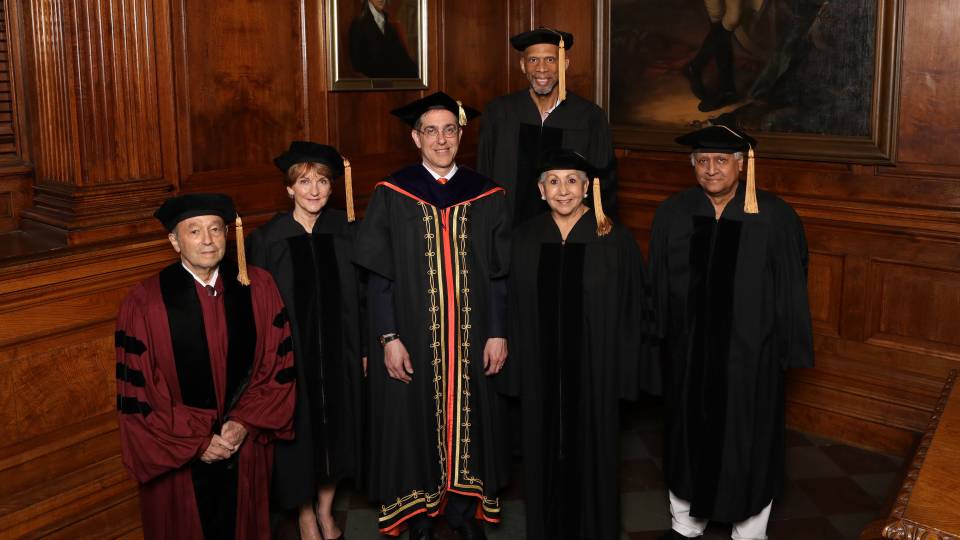President Clinton was scheduled to award the National Medal of Science to this year’s 12 laureates, including Princeton astrophysicist Jeremiah P. Ostriker, at a ceremony in Washington, D.C. on Dec. 1.
The ceremony was scheduled to take place in the National Museum Building at 7:30 p.m. Earlier on Friday, the National Medal of Science and National Medal of Technology laureates participated in a roundtable discussion on the future of science and technology education.
A webcast of the evening ceremony should be available at the Office of Science and Technology(Link is external) web page, and from the National Science and Technology Medals Foundation(Link is external) . Video of the ceremony also should be available via a live satellite feed and was scheduled to be broadcast live on the campus through Tigernet Channel 8.
Provost Ostriker was named an award winner (see National Medal of Science(Link is external) ) in recognition of his contributions to the field of astrophysics, including insights into the dynamics of galaxies and star clusters and the existence of large quantities of dark matter.
Ostriker’s scientific research focuses on theoretical astrophysics and has covered a wide variety of topics, proving essential to astronomers. The National Science Foundation cited Ostriker “for his bold astrophysical insights which have revolutionized concepts of the nature of pulsars, the ‘ecosystem’ of stars and gas in our galaxy, the sizes and masses of galaxies, the nature and distribution of dark matter and ordinary matter in the Universe, and the formation of galaxies and other cosmological structures.”
The awards, the nation’s highest scientific honor, are selected by President Clinton and administered by the National Science Foundation (see awards(Link is external) ). Princeton has 12 previous science award winners.
Contact: Justin Harmon (609) 258-3601

